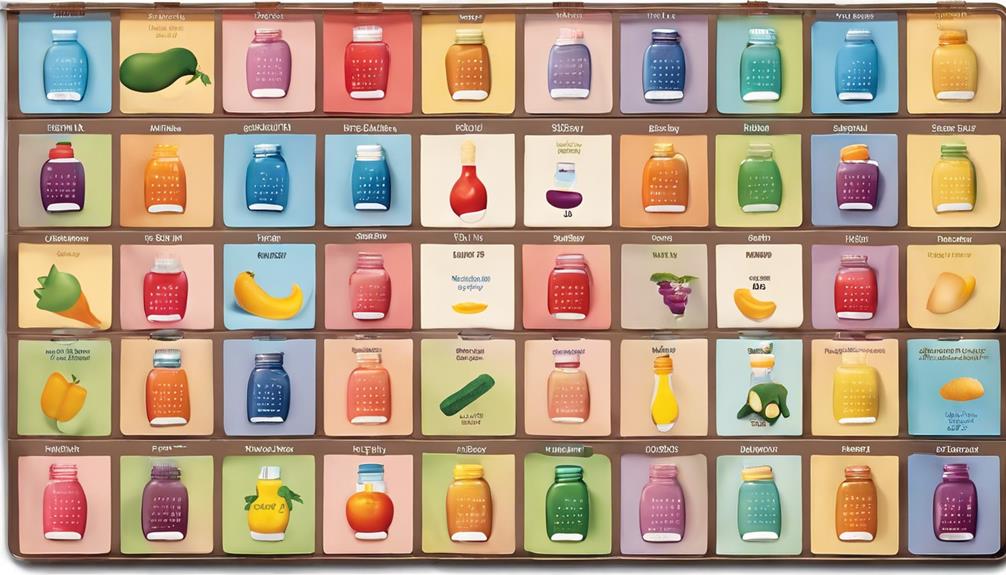Did you know that up to 90% of breastfeeding mothers experience some degree of nipple discomfort or injury?
Yes, that's a significant number!
So, how can we guarantee that our nipples stay healthy and intact during breastfeeding?
Well, the key lies in understanding proper latch techniques and positioning. But that's just the beginning.
Stay with us to discover more practical tips and strategies to prevent your nipple from falling off while nursing your baby.
Key Takeaways
- Ensure a deep latch and proper positioning to prevent nipple damage.
- Seek help from lactation consultants for guidance on correct latch techniques.
- Address underlying issues like tongue ties to enhance breastfeeding comfort.
- Consider using nipple shields for relief and protection against further damage.
Nipple Care Basics
When breastfeeding, proper nipple care is essential to prevent issues and guarantee a comfortable experience for both you and your baby. Ensuring a good latch and positioning is important in avoiding nipple pain and soreness. Sometimes, challenges like tongue ties or incorrect latch techniques can lead to nipple damage.
If you experience soreness or discomfort, seeking help from a lactation consultant can provide valuable support and guidance.
To protect your nipples, consider using nipple shields if needed. These shields can offer a barrier between your baby's mouth and your nipple, reducing friction and potential damage. Additionally, wearing comfortable nursing bras that provide adequate support can help in maintaining proper positioning during breastfeeding sessions.
Proper Latch Technique
To guarantee a comfortable breastfeeding experience and prevent nipple issues, mastering the proper latch technique is essential. When it comes to breastfeeding, achieving a good latch is critical for both you and your baby. Here are some key points to remember:
- Deep Latch: Make sure your baby has a deep latch to prevent nipple damage and soreness.
- Breast Tissue: Confirm your baby takes in enough breast tissue to avoid trauma to your nipples.
- Positioning: A good latch involves positioning the baby's mouth over both the nipple and areola for effective feeding.
- Consultation: Seek guidance from a lactation consultant to learn and practice proper latch techniques for nipple protection.
Managing Pain and Discomfort
Addressing underlying causes of pain and discomfort, such as tongue ties, can greatly improve the breastfeeding experience for both mother and baby. When experiencing soreness during nursing, focusing on proper latch and positioning is key.
Ensuring your baby is correctly latched can prevent nipple trauma and alleviate pain. Seeking guidance from a lactation consultant or specialist can provide valuable support in managing breastfeeding discomfort. Additionally, using nipple shields or expressing milk if nursing becomes too painful can help protect your nipples from further damage.
Using Nipple Shields
If experiencing persistent pain while breastfeeding, considering the use of nipple shields can provide relief and protection for sore or damaged nipples. Nipple shields made of thin, flexible silicone or plastic material can be beneficial in addressing latch issues and creating a barrier between the nipple and the baby's mouth.
To guarantee their effectiveness, it's essential to choose the right size and confirm a proper fit. Consulting a lactation consultant for guidance on using nipple shields correctly can further enhance their utility and comfort.
Nipple shields not only offer protection for damaged nipples but also aid in making breastfeeding a more comfortable experience for both you and your baby. Remember, the goal is to provide relief and promote successful breastfeeding, so don't hesitate to explore the option of using nipple shields if needed.
Seeking Professional Help
For those encountering difficulties with breastfeeding, seeking professional help from lactation consultants or healthcare providers is essential for addressing and preventing nipple damage effectively.
Lactation consultants offer expert guidance on proper latch and positioning, critical for protecting nipples from trauma. Healthcare providers can identify and address issues like latching problems or tongue ties, preventing further nipple damage.
Hospital teams and breastfeeding helplines provide valuable support, offering assistance and reassurance to mothers facing challenges during breastfeeding. Early intervention from these professionals is key in reducing the risk of nipples falling off during breastfeeding.
Frequently Asked Questions
Can Nipple Piercings Affect Breastfeeding and Nipple Health?
Absolutely, nipple piercings can impact breastfeeding and nipple health. They may cause issues with milk flow, infection risks, and potential damage. Consulting a healthcare provider can provide tailored advice for your situation.
How Can Hormonal Changes During Pregnancy and Breastfeeding Impact Nipple Health?
Through pregnancy and breastfeeding, our bodies undergo significant hormonal changes that can impact nipple health. Estrogen and progesterone levels rise, leading to sensitivity, changes in color, and potential dryness or cracking. Proper care is essential.
Are There Specific Foods or Supplements That Can Help Prevent Nipple Damage During Breastfeeding?
We've found that maintaining proper latch and positioning during breastfeeding is essential for preventing nipple damage. Additionally, staying hydrated and consuming a balanced diet rich in vitamins and minerals can help promote overall nipple health.
Can Nipple Creams or Ointments Be Harmful to the Baby During Breastfeeding?
Nipple creams or ointments are generally safe for babies during breastfeeding. However, it's advisable to use products specifically designed for nursing mothers and consult a healthcare provider if unsure. Ensuring proper application can help prevent any potential issues.
Is It Common for Nipples to Change Shape or Color During Breastfeeding, and Is This Normal?
It's common for nipples to change shape or color during breastfeeding, which is normal. These changes help facilitate milk flow. If you notice any concerns, seeking support from a lactation consultant or healthcare provider can provide reassurance and guidance.
Conclusion
To sum up, taking care of your nipples during breastfeeding is essential for a comfortable and successful nursing experience. Remember, just like a well-oiled machine, your body needs proper care and maintenance to function smoothly.
By following the tips and seeking help when needed, you can prevent your nipple from falling off and enjoy the bonding experience with your baby.
Stay informed, stay proactive, and most importantly, take care of yourself!









